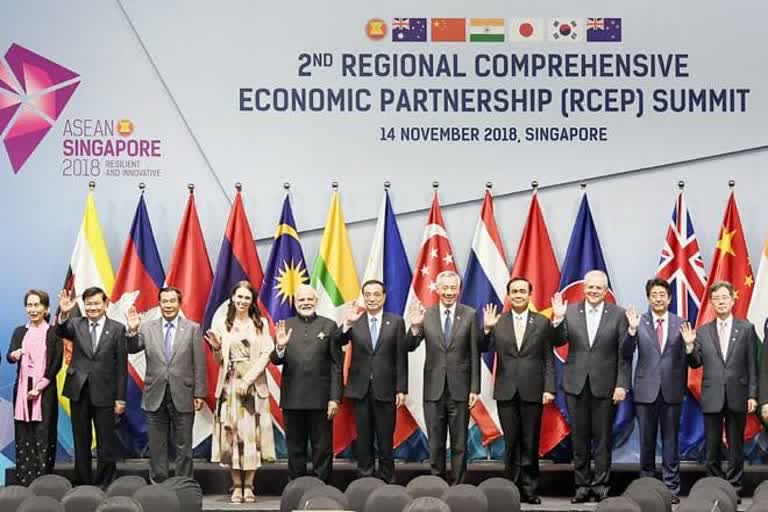Hyderabad:Regional Comprehensive Economic Partnership Discussions Started in 2012-13. It is expected to end this November. India, along with the 10-nation ASEAN alliance, China, Japan, South Korea, Australia and New Zealand, are expected to finalize a free trade and economic partnership agreement.
RCEP: India's concerns about the mega trade deal With India increasingly focusing on the service sector, If we consider the cost and size of production of the respective countries, the benefits of manufacturing-related deals may not benefit. In addition, India already has free trade agreements with Asian countries as well as South Korea and Japan.
Trade deficit
India's exports are worth USD 300 billion and imports are USD 461.2 billion. Total trade was USD 761 billion but the deficit was USD 161.4 billion. India's trade deficit with RCEP countries is USD 105 billion.
Dairy industry
There is a concern that over 8 crore Indian dairy farmers are hitting the road. Dairy production in India will be 33 crore tonnes by 2033 and demand will be around 29.2 crore tonnes, NITI Aayog reported.
It is understood that 93% of the country's dairy products are exported overseas. If dairy products emerge from New Zealand, demand for Indian dairy products will fall.
Spices and Rubber
Kerala is likely to lose their goods through cheap imported goods from Malaysia, Sri Lanka, Vietnam. Pepper imports have already increased by 184% and turmeric powder is up by 214%.
Due to trade agreements with Asian countries, the rubber industry's production is estimated to fall from one million tonnes to six lakh tonnes annually. Prior to the deal, the value of the rubber was dropped to Rs 115 from Rs 245.
China Invasion
Experts say that India should be careful on this and seek adequate protection in RCEP negotiations. The need for ICT devices in the country will be increased in the era of Digital India and the Internet of Things. If we rely too heavily on China to achieve it, our domestic production capacity will suffer. Also, by 2022, India, which aims to halt its electronics imports, needs to protect its industries.
The presence of China in the grouping is a big concern for the domestic bicycle industry as it is already facing problems due to a significant increase in imports from the neighbouring country. The import is happening despite the fact that there is a 30 per cent basic customs duty on a bicycle and 20 per cent on bicycle components.
Palm oil production
RCEP deal is also likely to have a significant impact on oilseeds and oil palm production domestically. India spent over Rs 46,000 crore on import of palm oil in 2017–18. Palm oil production costs are low in Indonesia and Malaysia. By reducing import tariffs by 0 to 3%, more palm oil will emerge from these countries.
Benefits
- RCEP is expected to provide market access for India’s goods and services exports and encourage greater investments and technology into India
- It would also facilitate India’s MSMEs to effectively integrate into the regional value and supply chains
- Facilitation of Enhanced Transparency
- Enhancing economic cooperation and integration
Aspects like quality too matters and Chinese products can be stopped entering the Indian markets if they do not match our quality standards. In case if they still offer a better price, with superior quality, it will increase the competition and push the domestic producers to raise the bar in quality standards and productivity levels.
In the short run it may bring in disturbances in the goods market, but in the long run, it will leave the consumers better off with superior quality products at a cheaper price and the producers with improved levels of productivity and competitiveness.
Moreover RCEP one of the most powerful trade blocs of the world with countries of this group contributing 34% of the world GDP and 40% of world trade. These countries make up more than 50 per cent of the world's population.
On the other hand, India is not a member of the Asia-Pacific Economic Co-operation (APEC) which is a grouping of twenty-one countries in the Asia Pacific region.
